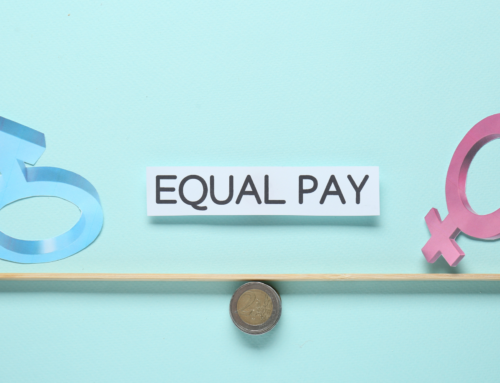Everything seems to shut down in winter. That includes immune systems.
You start to notice employees going down one after the other like dominos. Until all of a sudden, you’re facing an empty office (and a tearoom full of Lemsip.) So, how can you combat absenteeism in winter?
The truth is, you can’t. And you shouldn’t. Absenteeism is a part of being in business with humans. They will sometimes be not well. And just like when a car or hot water system breaks down, you don’t just fill it with Codral, wrap a scarf around it and expect it work the way it did before. You can’t expect the same from humans.
Everything needs time to repair. Which is why a workplace with a positive culture around absenteeism––particularly in the epic germ season of winter––will have much better outcomes in the long run.
Some managers loathe even the thought of absenteeism. This is not a healthy way to be, pun totally intended. Believe it or not, absenteeism isn’t the most threatening “eeism” to a company’s productivity. Presenteeism is actually much more damaging.
Presenteeism is when employees turn up to work when they’re not fit to work, because for whatever reason they have been made to feel that being absent is bad.
Perhaps they aren’t getting paid sick days, or there’s an important event coming up, or they are solely responsible for a huge workload. Or perhaps it’s because the culture in the workplace favours “if you ain’t dying, you ain’t sick” attitudes.
Whatever the reason, if you have a workplace that rewards coming to work if you’re sick, then sorry, but your workplace is unhealthy.
In a 2016 report, Presenteeism resulted in a total loss of $34billion in Australia annually. This fire on whatever cylinders you can drag to your desk culture is having a bigger effect on your workplace than you may realise.
Some of the pretty obvious ways presenteeism effects the workplace is:
• Cross-contamination. If someone forces themselves to come to work when they aren’t well, they can, and most likely will, bring their contagious germs into the workplace and spread the ‘absenteeism strain’ among their co-workers. And then you’ll know true absence.
• Increased work place risk. If your workplace involves any sort of manual work or machinery, having someone operate under the weather increases the risk of accidents and incidentally workplace claims. It’s just not worth it.
• Bad vibes. When people aren’t well, social cohesion is difficult. Communication is affected, moods are low, and some people don’t tend to handle things as best they could when they’re fighting fit. This can dampen the overall vibe of the workplace and effect productivity across the board.
• Customer service drops. Sick people aren’t great with customers. There’s a full stop there.
• People get sicker. Perhaps a person comes to work when they’re sick because they have deadlines and no one else can fill their boots. But then they get even sicker as a result and are actually forced to take the next month off instead of the initial few days they refused to… Get it?
How can you combat Presenteeism?
• Don’t give weight to the “soldier on” adage. Make it clear to employees that if they are sick, it is encouraged and expected they stay home and recover.
• Ensure your managers understand the philosophy and the relationship between absenteeism vs presenteeism and ensure the policies around absence are in favour of sick leave. Make sure there are clear policies around taking sick leave as well as appropriate support for employees returning to work after sick leave.
• Train management to recognise symptoms of poor health or mental health and to encourage staff to take some time off if it feels like they are struggling through something. A couple of days refresh may be all they need to come back stronger. It’s important to open the dialogue and make that available to them. Perhaps even offer to work from home for a bit if there is something pressing on the schedule.
At the end of the day, it’s better for the whole workplace if the sick people are allowed to be sick, take some time out, and recover 100%, than if the whole team just continues to soldier on through the tough times at 60%.
And, please, don’t ever try to fix a car with Codral.
Continue Reading
Get a personal consultation.
Call us today at 1300 959 560.
Here in HR Gurus. We make HR simple because it should be.





